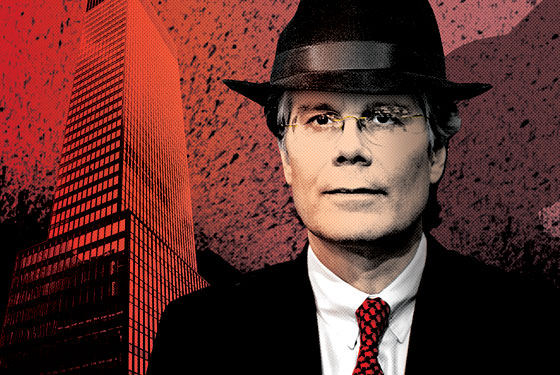Just Business
The fall of book publishing’s last don.
 |
| Illustration by Gluekit (Photo: Sean Gallup; Getty Images (Olson); Jesse Grant/WireImage (hat); AP Photo/Marty Lederhandler (building) |
If you want to understand book publishing, you need to think less Bloomsbury and more Gambino: The five big companies are like the five families. Imprints are crews with plenty of ambitious upstarts looking to make their bones. And every once in a while even a good earner has to get whacked to send a message. Until it was reported that he was stepping down as CEO last week, Peter Olson was the godfather of Random House, which became dominant in the industry when he merged it with Bantam Doubleday Dell ten years ago. Olson’s Big Random, twice the size of its nearest rival and controlling 20 percent of the adult book market, was created to be a bully. With one hand it would beat down the door of the bookstore chains, forcing them to give all of its titles preferred placement in return for the house’s biggest books. With the other it would muffle the insistent agents and their ever-increasing demands.
At least that was the plan. But the reverse happened. For all of his tough talk, the proud and cerebral Olson was never a real enforcer.
